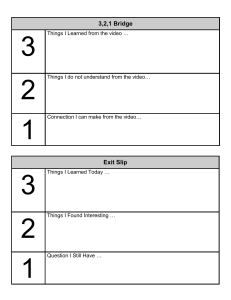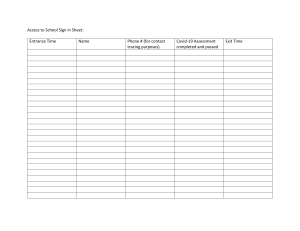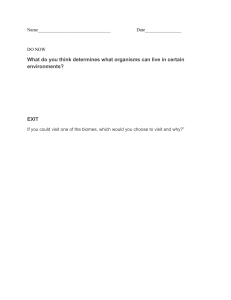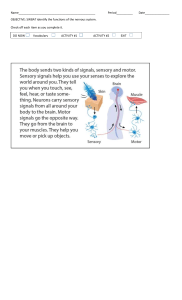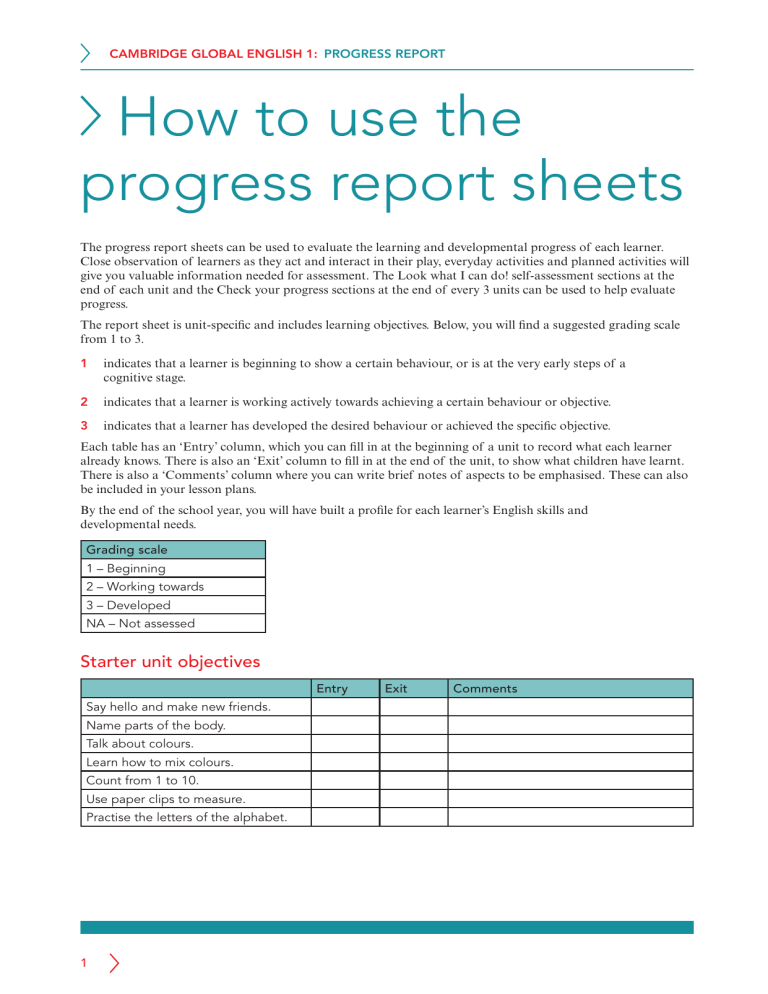
CAMBRIDGE GLOBAL ENGLISH 1: PROGRESS REPORT How to use the progress report sheets The progress report sheets can be used to evaluate the learning and developmental progress of each learner. Close observation of learners as they act and interact in their play, everyday activities and planned activities will give you valuable information needed for assessment. The Look what I can do! self-assessment sections at the end of each unit and the Check your progress sections at the end of every 3 units can be used to help evaluate progress. The report sheet is unit-specific and includes learning objectives. Below, you will find a suggested grading scale from 1 to 3. 1 indicates that a learner is beginning to show a certain behaviour, or is at the very early steps of a cognitive stage. 2 indicates that a learner is working actively towards achieving a certain behaviour or objective. 3 indicates that a learner has developed the desired behaviour or achieved the specific objective. Each table has an ‘Entry’ column, which you can fill in at the beginning of a unit to record what each learner already knows. There is also an ‘Exit’ column to fill in at the end of the unit, to show what children have learnt. There is also a ‘Comments’ column where you can write brief notes of aspects to be emphasised. These can also be included in your lesson plans. By the end of the school year, you will have built a profile for each learner’s English skills and developmental needs. Grading scale 1 – Beginning 2 – Working towards 3 – Developed NA – Not assessed Starter unit objectives Entry Say hello and make new friends. Name parts of the body. Talk about colours. Learn how to mix colours. Count from 1 to 10. Use paper clips to measure. Practise the letters of the alphabet. 1 Exit Comments CAMBRIDGE GLOBAL ENGLISH 1: PROGRESS REPORT Unit 1 objectives Entry Exit Comments Entry Exit Comments Entry Exit Comments Entry Exit Comments Say the name of things in the classroom. Name colours. Talk and write about what we do in school. Interview and introduce a friend. Read and write letters of the alphabet. Read and talk about a poem. Unit 2 objectives Talk about families. Count and write numbers 0 to 10. Ask and answer questions about food. Read and write words with short a. Read and write about what families do. Unit 3 objectives Talk about things we can do, such as throwing and catching a ball. Follow instructions and play games. Say where things are. Read and write words with a short u. Read and talk about a story. Act out a play and talk about characters. Unit 4 objectives Talk about what people are wearing. Talk about what people are making. Talk about shapes and count to 20. Talk and write about what people are making and doing. Read and write words with a short e. Read a story and talk about characters. 2 CAMBRIDGE GLOBAL ENGLISH 1: PROGRESS REPORT Unit 5 objectives Entry Exit Comments Entry Exit Comments Entry Exit Comments Entry Exit Comments Name things on a farm. Talk about living things. Learn about life cycles. Talk about what people and animals are doing now. Read and write words with a short i. Read a story and talk about characters. Unit 6 objectives Talk about how we perceive the world through the senses. Talk about musical instruments and sounds. Describe and compare things. Use our senses to describe things. Read and write words with a short o. Read, talk about and act out a story. Unit 7 objectives Talk about different vehicles. Talk about vehicles. Do an experiment. Follow instructions and describe things. Read and write words with a long e – spelling ee. Read a non-fiction text. Unit 8 objectives Talk and read about things in a city. Describe and ask questions using this, that and these. Read and write words that end in –y. Name opposites. Read and talk about a poem. 3 CAMBRIDGE GLOBAL ENGLISH 1: PROGRESS REPORT Unit 9 objectives Entry Talk about the weather. Talk about things we do every day. Say why plants, animals and people need water. Do experiments with things that float and don’t float. Read and write words with the long a spellings – ay and ai. Read, discuss and act out a folktale. 4 Exit Comments
